- Author Adrian Jeff jeff@psychologosportal.com.
- Public 2023-12-17 05:06.
- Last modified 2025-01-24 14:09.
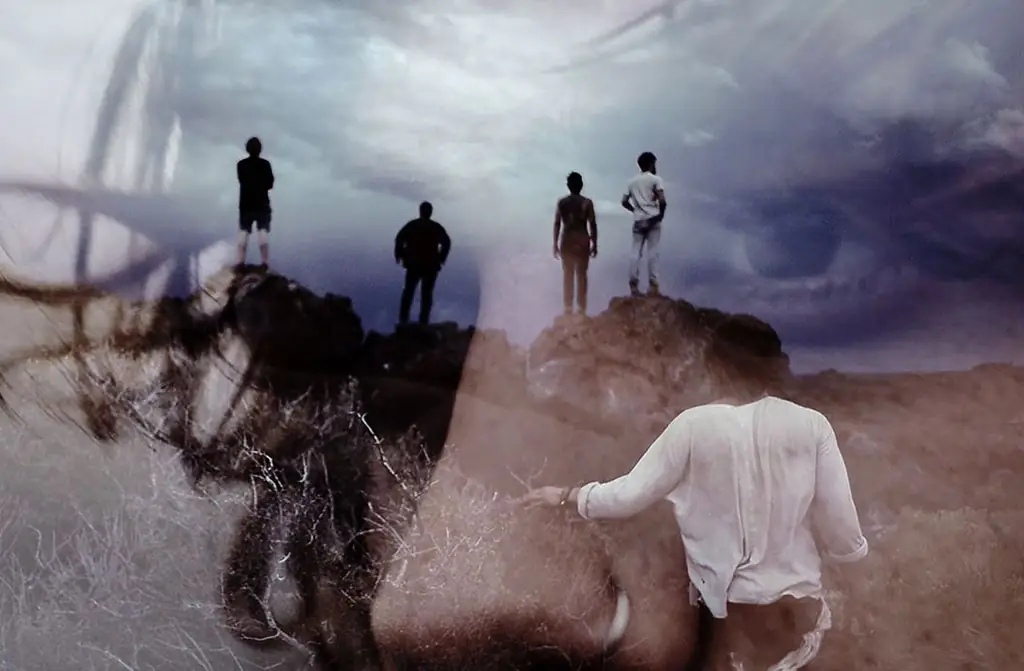
The last revolution. What really awaits us?
To understand how we found ourselves in the present day and what awaits us in the future, we need to look into the distant yesterday. What is the unconscious silent about? What processes are taking place in this hidden area? And how does this define our present and future?
Human consciousness is mistaken and out of sync with the unconscious. Therefore, all people think one thing, say another, and do the third - what the psyche orders.
A simple example in which many recognize themselves is procrastination. The head man understands that chronic laziness takes away his health, happy relationships, and success. Convincing myself and others: Monday I start a new life. But what continues to do in spite of his thoughts and words? What his unconscious desires tell him.
We do not live, we live. When a person is not aware and does not control his desires, this is a danger.
What is the unconscious silent about? What processes are taking place in this hidden area? And how does this define our present and future?
Childhood of humanity
To understand how we found ourselves in the present day and what awaits us in the future, we need to look into the distant yesterday.
Scientists still cannot give an accurate and intelligible answer to the question: how did a man turn out from a monkey. This riddle cannot be solved by relying solely on material evidence - skeletons, shells, clay shards. The fact is that the transformation from a weak animal into the ruler of the world took place in the unconscious - an entity hidden from view.
By now, many "missing links" have been found in Africa, a detailed, almost continuous evolutionary chain of fossils has been built from ancient apes to modern humans. However, some transitional forms have not been found. But even if we assume that they disappeared without a trace or scientists will discover them later, the question remains: what triggered the genetic mutation and the cognitive revolution?
To begin with, humans are ridiculously weak animals. At the dawn of time, we fit into the food chain as easy prey, but it was extremely difficult for us to get valuable meat. A prehistoric man would gladly exchange adorable teeth for sharp fangs, and thin nails for deadly claws. And how, tell me, to win in natural selection with such inclinations?
It is a bad idea to develop the brain on the same roots, nuts-berries, insects and the falling from predators (and this is what pre-people ate). We need meat, a lot of meat, better than fried. This is a sufficiently high-quality building material for the growth of "gray cells". And it also gives us invaluable time for "leisure" - training convolutions and development of speech.
Our closest relatives, chimpanzees, spend five hours a day to gain the required amount of calories. And with fried meat, you only need to move the jaw for half an hour. Profit! However, for a weak woolen "monkey" like a man millions of years ago, mountains of barbecue are a pipe dream.
Nevertheless, the brain volume of a Homo sapiens suddenly doubled 200,000 years ago, some anthropologists have calculated. Why did the brain evolve? Scientists do not find an explanation for this, because the answer lies in the evolution of human desires.
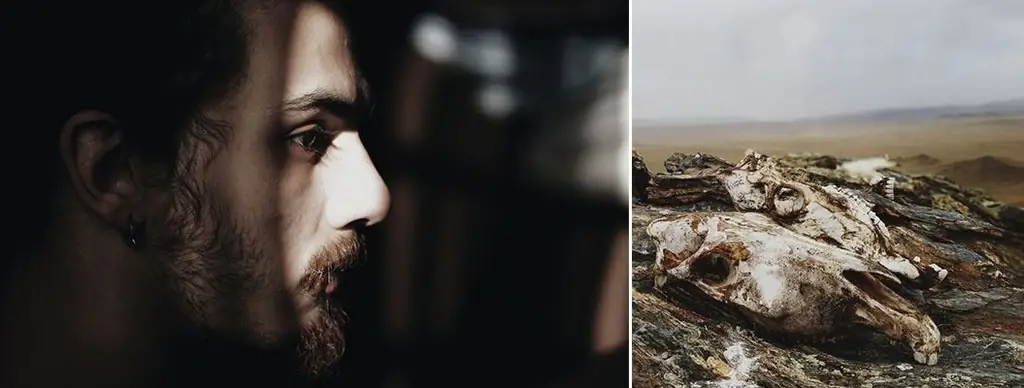
Evolution Trigger
The fundamental desire of any living creature is to preserve itself. This is clearly seen in the life of plants and wild animals. For example, a bear in a remote taiga unmistakably fulfills the natural program to survive: she does not eat poisonous berries, tries not to fall into a ravine. In order to preserve themselves not only at the moment, but also forever and ever, animals strive to give offspring. They are driven by instinct.
Man also wants to survive and multiply. One might argue that today there are people who do not want to live, and even more so to give birth to children. But we are talking about primitive times, and the then Homo Sapines, in fact, remained a wild animal, and his main desire was to save his life.
Nature has not endowed our species with power and innate "instruments of murder", but has placed them in conditions of terrible hunger. The natural desire to survive, spurred on by an acute lack of food, grew so much that it began to mutate. The appearance of an additional desire to preserve oneself and its evolution is the reason for the transformation of a monkey into a man. This process is described in detail and evidence-based in system-vector psychology.
During evolution, it was not so much our external appearance that changed as our inner world: the animal species instinct mutated into a single unconscious of the human species. Roughly speaking, what makes birds of the same species fly to the south in concert has turned into our psyche. In 1916, the renowned psychiatrist Carl Jung will call it the "collective unconscious".
Also, each representative of Homo Sapiens gradually acquired an individual consciousness. Thanks to him, we have become invulnerable to the attacks of our smaller brothers. However, instead of an external threat to survival, they acquired an internal one - the danger of self-destruction.
The danger inside
Over the past almost 3.5 thousand years, people lived peacefully only 268 of them - this is only 8% of the recorded history. If we take into account local conflicts, then there was not a year when no one fought.
The engine of history is human actions. In turn, they are a direct consequence of our unconscious desires. If we ask ourselves what most of all prevents humanity from living in harmony and contentment, then the answer must be sought in our psychology. We are a threat to ourselves, as Carl Gustave Jung said:
“… We need more understanding of human nature, because the only existing danger is the person himself. He is a great danger. And we, unfortunately, do not realize this. We know nothing about a person, negligible. The human psyche must be studied, because we are the source of all possible future evil."
It is easy to see that a person who is not aware of and does not control his desires is a source of danger for himself personally: let us at least recall the example that was at the very beginning, about pathological laziness, the syndrome of delayed life. What about drugs and alcohol? A person may be happy to get rid of addiction, but it is impossible to resist destructive desires.
Often, desires are "ordered" to harm not only ourselves, but also those around us: who of us, out of resentment, in a fit of anger or during a protracted melancholy, from prolonged dissatisfaction with our desires, did not commit rash acts? To do something or say nonsense, or maybe insult or even hit, and then bitterly regret …
Unconscious, uncontrollable, impulsive desires pour out into actions that can destroy life - this is obvious. And even despite the butterfly effect (even a small event can trigger a chain reaction with significant consequences), all these are particulars. And what happens when destructive desires ripen in the volume of the collective unconscious? And what can impulsive actions on a global scale lead to?
It only seems to us that we think, have a personal opinion, decide. Having arisen from the animal intraspecific instinct, our common psyche still harmonizes all 8 billion individuals of the species Homo Sapiens. And with our little individual "mind" we cannot resist her. This is also easy to see with an example.
Ask anyone, he will think and say: “I don’t want war! People should live peacefully. This is at least beneficial. How much money and time can be spent not on the arms race, but on the development of science, culture, technology!..”The key word“thought”.
Remember how in 2015 Turkey shot down a Russian Su-24 bomber near the Syrian border and our pilot died. All of Russia was buzzing with indignation: “We will not leave like that! We need revenge! Bomb them to hell! We were one step away from the war. Collective anger burned in the heart of everyone, even the most reasonable person. You cannot command the heart, or rather, the will of the unconscious.
It is the collective psyche that is the area where deadly storm clouds accumulate. And already we see thunder and lightning on the squares filled with agitated people, we learn about the next "storm" from the special news bulletins. This is what Jung implied in a 1959 interview.
Neither elephants nor Guppy fish make wars and revolutions, this is the exclusive ability of Homo Sapines. To understand exactly what desires make us organize riots, carry out coups d'état, start wars, where does the threat of self-destruction of the human species come from and how to neutralize it, we need to understand our human nature deeper.
Skeletons in the closet of humanity
In primitive times, man suffered severe hunger. At some point, the desire reached such strength that our ancestor looked at his fellow tribesman and saw in him not a brother and comrade, but a delicious dinner, this scientific hypothesis is correlated with system-vector psychology. To this day, Homo Sapiens is the only species that practices large-scale extermination of their own kind.

The desire to eat one's neighbor, of course, was taboo in ancient times. Without a strict, peremptory ban on indiscriminate cannibalism, nothing of the human species would have remained 100 thousand years ago. However, prohibiting does not mean solving the problem.
Under the threat of punishment, having suppressed a passionate desire to eat a neighbor, our ancestor felt dislike - a consequence of frustration, dissatisfaction. Most likely, you noticed that when you are very hungry, other people are angry, annoying. And after a delicious and hearty dinner, dislike vanishes, you want to talk, joke and smile. Here is a psychological rudiment.
To this day, the perception of another person, not covered by the fig leaf of culture, ranges from tolerant ill will to outright hostility. Check yourself: when a person with whom you are not familiar, takes your thing in a businesslike manner, what feelings awaken in you? What truth is hidden under the benevolent smile of the rules of decency?
The unsatiated and repressed “want to eat another” is also the root of greed, the desire to get what the other person has. It is easy to trace it by yourself: no matter what you have, you still look back at your neighbor and want for yourself what he has. But this incarnation of a destructive desire for the human species stumbles upon a prohibition already in prehistoric times: if you take without asking your fellow tribesmen, we will drive you out of the pack to certain death.
Why is resentment and greed a threat of self-destruction? And can these experiences seriously harm the life of civilized humanity?
Animals satisfy the basic desire to preserve themselves and reproduce due to the intraspecific coordinated instinct. By exchanging smells and sounds, animals inform each other, for example, about danger. This happens with the help of pheromones: unconscious "smells" automatically evoke certain sensations in individuals of one species. And now a herd of musk oxen is moving, the sparrows break loose and fly away …
The human collective unconscious also controls our species infallibly. Where does the threat come from then? From consciousness. This instrument for the fulfillment of our desires, on the one hand, lifted us to the top of the food pyramid, and on the other, we received a “side effect”: a feeling of our own uniqueness. Each person is encapsulated in his own I and does not feel a connection with the species, does not receive up-to-date information on the request "how can I live."
Dislike and greed are the experiences of failed attempts to directly, selfishly satisfy the desire to preserve oneself. Most people want to use another person to fulfill their own desires, but this is still prohibited by law and culture: you cannot steal, you cannot commit meanness, etc.
When "I want and I do not receive" is seething in many people, the horizon of the collective unconscious darkens dangerously: the clouds are ripening, filling with lead. At any moment a storm may break out - a rebellion will break out, senseless and merciless. Everyone has one thought throbbing in his head: "Give me what I want, otherwise you will be uncomfortable!.." When a person does not get what he wants for a very long time, he goes berserk. What can this lead to?
When you really want to - you can
The history of the development of mankind is the history of the growth of the desire for pleasure at the expense of another. The volume "I want" is always increasing. This principle was excellently illustrated by Alexander Pushkin in the fairy tale "About the Fisherman and the Fish": having started from a modest trough, the old woman was never able to curb her desire to receive.
Once emerging, hostility and greed also grow and threaten humanity more and more. How did we survive if such destructive desires live in us?
The threat of self-destruction was fought in different ways. The earliest is ritual cannibalism. When the desire to eat one's own kind reached its peak, a special person - a shaman, later a priest - performed the ritual, and the degree of tension in society subsided. The "Tale of Bygone Years" describes a terrible case: in 983 the Varangian Fedor refused to voluntarily give up his little son John as a sacrifice to the pagan god Perun. The outrage subsided only when both the father and the baby were killed.
People today practice this method of dropping hostility, only in a sublimated form. One option is a reservation. Often on television, you can see how the skin-visual singer is publicly "sacrificed" - talk about her unfortunate deeds. This is a signal that they have given the go-ahead: everyone happily pounces on her with accusations, no one misses the opportunity to have fun, everyone tries to throw a heavier stone into the victim.
However, mankind knows not only cruel ways to calm down raging destructive desires. Another invention, another way to relieve an attack of greed - exchange, barter. And today people change things, especially children. They change molds in the sandbox, toys from the "kinder surprise", and later - clothes at the summer camp. Of course, you have to give your own - not the most pleasant experience. But, nevertheless, as soon as someone else's thing, which now belongs to you, falls into your hands, your heart warms.
Natural xenophobia also came in handy to defuse tension. By dividing people into friends and foes, we were able to bypass the strictest prohibitions on war and murder. Within the tribe - the law, and later the culture - two limiters of natural destructive urges. They work like this: we stick to our own, but then we go to war on a neighboring farm and satisfy personal and collective hostility and greed.
It may seem that we are today - civilized people. The dictatorship of the law and the highest cultural achievements make us conscious and complacent. However, hostility and greed are no longer the same as in ancient times, today they blow off our heads and turn into a total threat.
Save up for weekdays, neutralize on weekends
Until recently, predatory wars were the only way to fill the innermost desires of a person and disperse the clouds of psychological intensity. Today we can thank God that there is a shopping center in every city. For the first time in human history, you can quench your growing greed simply by shopping.
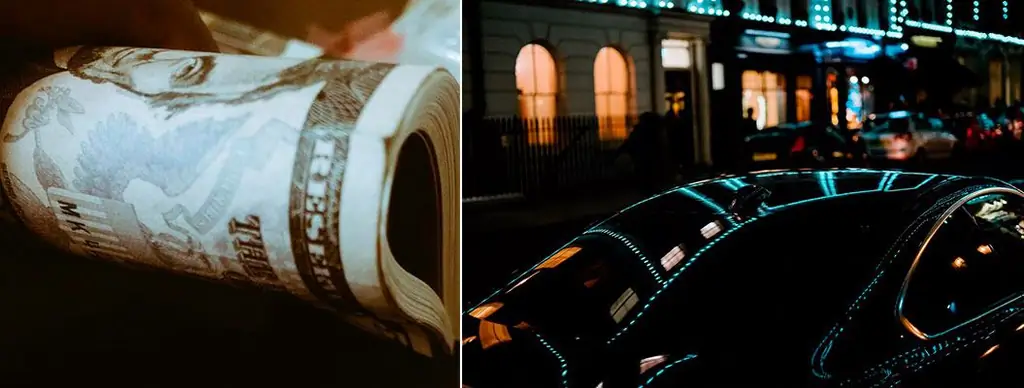
Shopping is truly healing, and this is easy to show with an example. Now your working day ends. It was full of hateful things: it was necessary to strain, including the brain. Instead, you would love to eat something tasty and go to sleep in a soft bed. And I also had to communicate with people - my eyes would not see them, right? They all want something, pull, demand. Unbearable!
But that's all behind. Finally, you enter the glass doors of a sparkling shopping mall with iridescent colored lights. Nice music, shop windows vying with each other inviting to get pleasure of consumption. Dinner in your favorite restaurant, a couple of new blouses, two carts of food from the supermarket - and now sparks of delight tickle your heart. Greed is satisfied, dislike is dispelled by the fulfillment of desires - he wanted and finally received.
After a few hours, you leave behind the door of the shopping center, inhale deeply, being in the air. Inadvertently, your gaze falls on a sullen man in an unfashionable jacket and clandestine Chinese sneakers.
This person will pass by the seductive glass doors, because the temple of the cult of consumption is inaccessible to him. He looks grimly at the paper bags with the names of the world's brands in your hands. And then you understand - here it is, unquenched greed, flaring up hostility.
We are no longer primitive people. We have been living for a hundred years without widespread hunger. But our nature has remained the same. And when some have it and others do not, there is always a risk that the peaceful course of life will be interrupted.
Imaginary peacetime
Once upon a time a man had nowhere to take a stone ax, except from a hated neighbor. There were no supermarkets, there was no way to get rid of the accumulated frustration - the tension from unfulfilled desire. Today, huge greed is leveled by unthinkable opportunities to buy whatever your heart desires.
We even measure the level of happiness (the absence of bad experiences from "want and don't get") by purchasing power. After all, people buy not only food, but also medical and cosmetic services, equipment to improve water, air … In general, everything that allows you to extend life and significantly improve its quality.
And everyone would live in contentment if it were not for the problem of inequality and injustice. Indeed, even with an abundance of opportunities, there are always dissatisfied people. Those who go to a small shopping center in their neighborhood look with envy at those who visit the Mecca of the cult of consumption - the capital's TSUM. And the latter, in turn, with a stone in their hearts think about those who went shopping in the conditional Milan.
Each one feeds the thundercloud of collective psychological frustration with his discontent. When one person is joyless, it is sad, but not fatal to the sight. However, the lack of volume in the inhabitants of an entire city, region, country creates inevitable prerequisites for war. And when the cup of patience is overflowed, nothing can drive the warlike genie back into the bottle.
Is the imaginary foundation strong
In addition to inequality, there are events that are rapidly approaching the storm. Nepotism and corruption leave deep festering wounds in the heart of the human community. And the point is not even that someone has enriched himself, and someone has not. Although, of course, this raises silt from the bottom and the waters of the Ganges grow cloudy - greed does not sleep. It is especially dangerous that these crimes undermine the trust system. And now, one by one, citizens stop believing in an imaginary entity called "state".
In general, humanity is an amazing creature. Have you ever thought about the fact that our entire way of life is based on imaginary entities? The state, money, brands - there is none of this. All this exists only speculatively, although, of course, it has physical attributes. What would happen if all of humanity suddenly had amnesia?..
Imaginary entities are held by the fact that very, very many people firmly believe in them. Just imagine what will happen if billions of people at once refuse to believe in money, stop recognizing its value, do not trust them with their work, their savings, their future. These will simply be numbers assigned to pieces of plastic.
The state, money, religions and other imaginary entities were invented by humanity to preserve themselves. Without them, we would not have been able to evolve from a puny flock of monkeys to a species of almost 8 billion individuals. Only through speculative categories, backed by universal acceptance, trust and everyone's contribution, we create a collective security system and under its auspices can multiply, consume, and develop.
When the imaginary entities that make up the foundation of human society are depreciated, we are very close to the implementation of the program of self-destruction. Without taking into account the interests of others, filling their desires at the expense of others, no one will be able to survive. Either all or none survive.
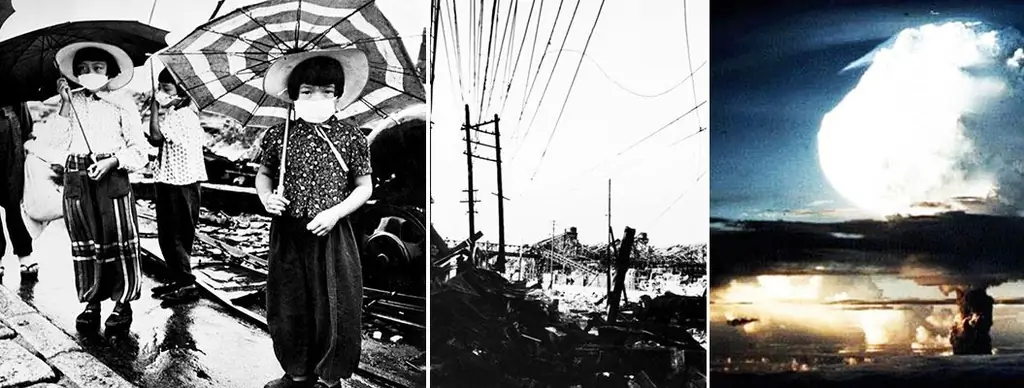
We have created an imaginary foundation, and we will destroy it if we ignore the fact that it is the psychological state that determines whether we should be or not.
Around the bend a cliff
We can swear as much as we like of the kindness of our hearts and the awareness of our actions. But when the patience of the collective unconscious is overflowing, you will find yourself on the square, shouting curses into the void and holding weapons.
Turn on the evening news and see an example of the yellow vest movement in France. Fuel prices went up and up, and at some point patience snapped. This spontaneous protest began at the end of 2018 and has not yet subsided.
The quality of life of a single person and of all of us together is determined by what is happening in our soul - individual and collective. The unconscious is the realm of desires. When storms rage in the invisible part of human nature, they are embodied in completely real, often armed, conflicts.
Think back to 2014. The level of hostility went off scale, everyone took himself out of the brackets - no one wanted to be involved in such a state, such a country. Some were beating in convulsions of hatred and from a cannon they poured mud on the past, present and future of Russia, while others were bleeding from the heart of the loss of the feeling of belonging to the big, great, quivering concept of Motherland. Even if a person was full and shod, his psychological state was depressed.
The tension eased in a few weeks, and the reverse process began - the consolidation of the country - during the Winter Olympics in Sochi. We held our breath as we watched the breathtaking opening ceremony. All of Russia rejoiced when our, relatives, athletes honestly and beautifully took one gold medal after another. An irrefutable triumph dispelled the storm clouds in the collective unconscious - we moved away from the abyss that was already so close. And Ukraine stepped off the cliff …
We cannot confidently go into the future without understanding how the subconscious works. At any moment, our primordial naivety, ignorance of ourselves can turn into a disaster. After all, people used to go at each other with spears and Kalashnikovs, and today, in a fit of anger, their hands reach for the nuclear suitcase.
Individually, people really do not want war: the individual desire is too small to start, for example, the Crusade. But the collective unconscious weighing almost 8 billion people is a sufficient amount of desire to destroy even the whole world.
But not today
What to do? First, you need to stop being fascinated by "gadgets". We cannot tell ourselves not to want: what is a tiny individual mind next to the infinity of the collective unconscious?
Even if we come up with some fantastic way so that everyone can realize purchasing power and everyone gets the same amount as everyone else, nothing will come of it. Desires grow without asking permission.
Tighten laws to slow the approaching storm? For the skin of the Western world, this method stops working, but what is the law for us, who live at the behest of the heart, for people with an urethral-muscular mentality?..
To develop a culture so that from childhood a person grows up conscious and kind-hearted? The dam of culture, morality and ethics is eroded and is being held up with the last bit of strength. Examples from outstanding books and films no longer limit our wild impulses. Children already at school arrange fight clubs, adults lose their nerves, and now we see fights with bats between autohams …
There is only one thing left - honest, complete, unmistakable self-knowledge. Acquaintance with oneself without inventions and conjectures.
The last revolution
Self-knowledge will lead to a revolution in the mind - a revolution in the perception of reality. We somehow modernized almost the entire surrounding nature, it remains only to get into the depths of our own soul.
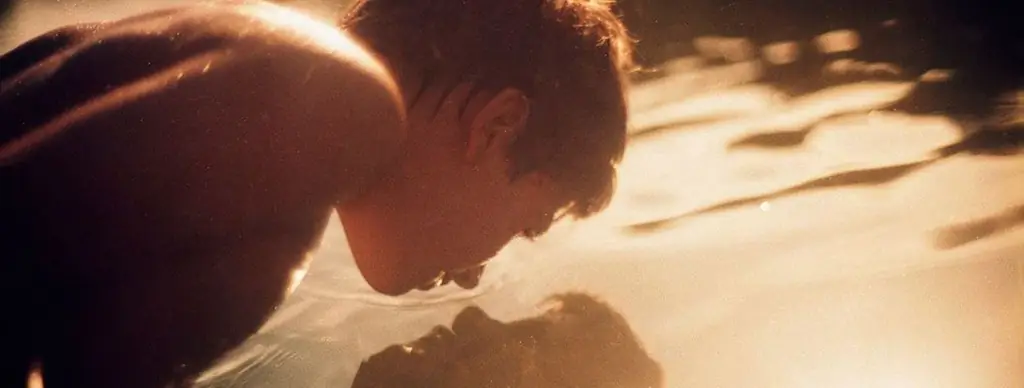
Only an intensive, deep psychoanalysis, which Freud and Jung could not dream of, could neutralize the threat of self-destruction. All of humanity is evolutionarily ripe to open up the collective unconscious. This does not mean to formally take into account - people are united in the field of such a psychological "electromagnetic field".
Awareness of the collective unconscious is a greater revolution than when we discovered the microcosm and got acquainted with bacteria and viruses. More than when humanity realized and formulated the laws of physics. More than when all the mysteries of quantum field theory are solved.
The disclosure of the collective unconscious is a new round of evolution of the inner world of a person. The mass feeling of psychological unity, the inextricable connection of everyone with everyone erases the contradictions between people.
Changes within a person, of course, will affect the external - social order, our ordinary life. There will be no enmity - how can the cells of one organism wish to harm each other? A simple mechanism works: as the body rejects foreign objects, so the person is hostile to someone else. And that, with which there is unity, loves, values, protects.
There will be no greed either - it is impossible to steal, take away from oneself. Try to want to get a thing that already belongs to you. Let's say you are holding your own mug and you want to get it (and not another one like that) - nonsense.
Humanity has the opportunity to grow up, to stop committing destructive ill-considered actions, to guarantee itself a long and happy life. Or not be able, not to have time to dispel the storm clouds. The choice is ours.






